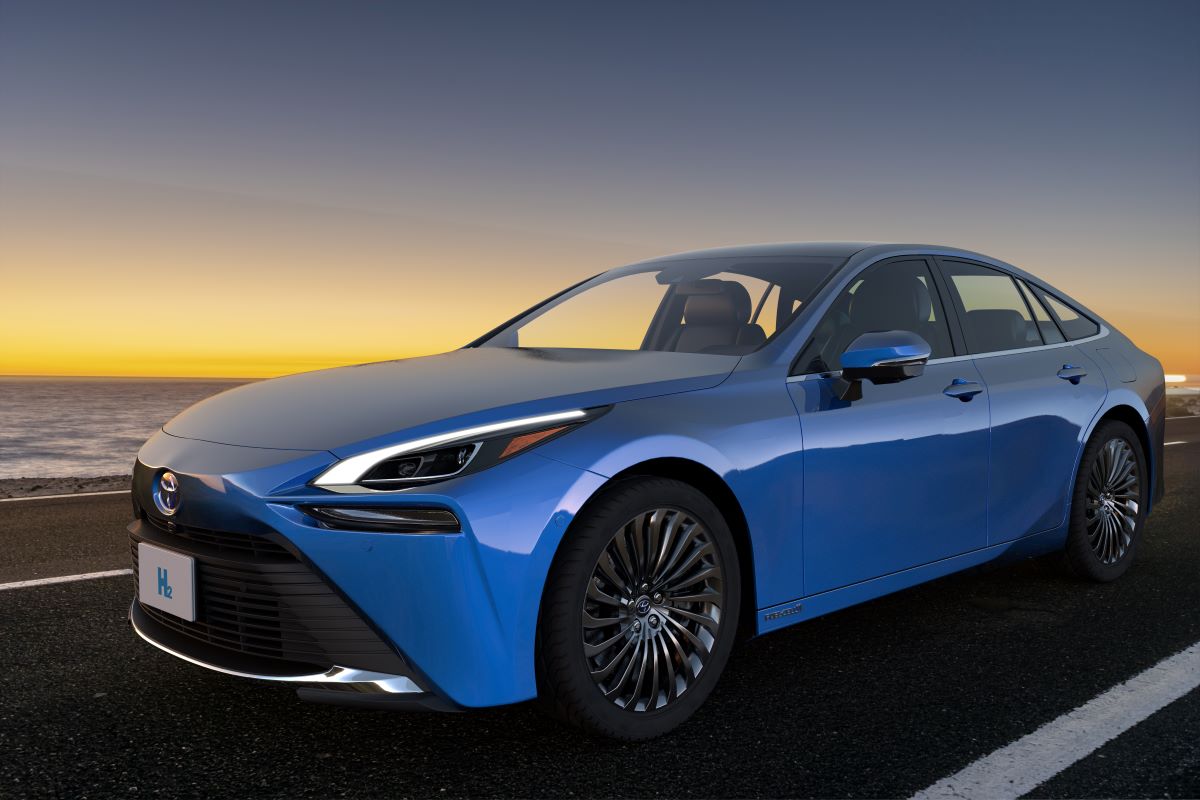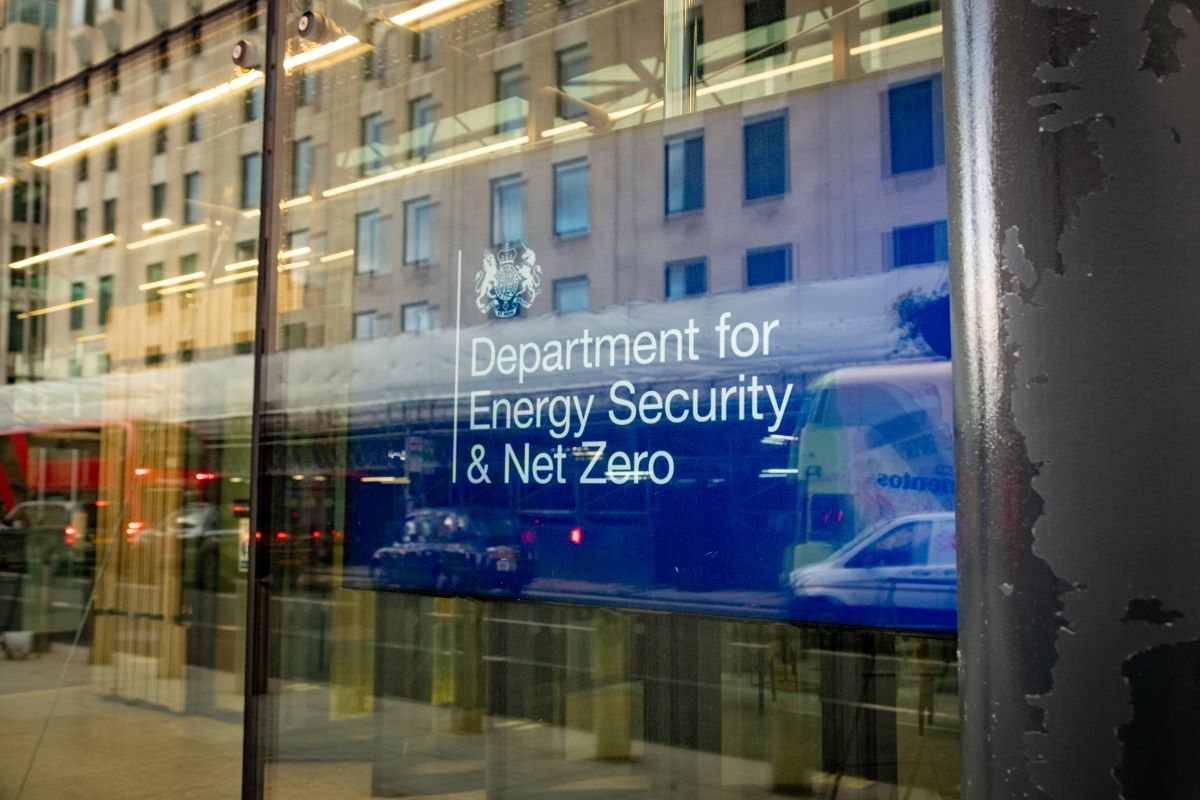Can I buy a hydrogen-powered car in the UK?

If you’re interested in alternative fuels and prefer the internal combustion engine (ICE) that comes with a hydrogen-powered car over their electric vehicle (EV) counterpart, you might be wondering whether you can buy a hydrogen-fuelled vehicle in the UK.
In this blog, we explain if you can, plus everything else you need to know about hydrogen-powered vehicles.
What is a hydrogen car?
A hydrogen car is one that’s powered by hydrogen instead of petrol, diesel or electricity.
There are two main types: a purely H2-fuelled vehicle and a hydrogen fuel cell electric vehicle (FCEV). While the former runs solely on hydrogen, so retains the familiarity of an ICE vehicle, the latter powers an electric motor using hydrogen.
Thankfully even with the FCEV, you don’t have to charge the battery as you would with an EV, allowing you to still benefit from the faster refuelling times that hydrogen cars offer.
That being said, this type of hydrogen vehicle doesn’t retain the same familiar noise as petrol or diesel cars, so if that’s an important part of the ICE vehicle experience, we would suggest you opt for a car that’s solely powered by hydrogen.
Are there any hydrogen cars available in the UK?
There are currently two hydrogen-powered cars available in the UK: the Toyota Mirai and the Hyundai Nexo SUV.
Toyota Mirai

Key specs at a glance (second generation Mirai)
Driving range: More than 400 miles (WLTP estimate)
Class: Mid-size luxury vehicle
Body style: Four-door sedan
Top speed: 111mph
Type: Hydrogen fuel cell electric vehicle (FCEV)
Battery: 1.2kWh lithium-ion
Euro NCAP safety rating: 5/5
We had the opportunity to get up close and personal with the Toyota Mirai a couple of years ago and have to say we enjoyed the experience a lot. The car was comfortable, luxurious, quiet, and sleek – all the things you could ask for from one of the first hydrogen-fuelled vehicles to touch UK soil.
The Mirai is an FCEV, but it’s still a great choice if you’re thinking of making the switch soon.
Hyundai Nexo SUV
Key specs at a glance
Driving range: 414 miles (WLTP estimate)
Class: Compact crossover SUV
Body style: Five-door SUV
Top speed: 111.2mph
Type: Hydrogen fuel cell vehicle (FCEV)
Euro NCAP safety rating: 5/5
If you’re looking for a hydrogen vehicle with more space, Hyundai’s Nexo is an excellent choice. The vehicle has all the bells and whistles you would expect from a modern luxury vehicle, complete with an infotainment system, seats that can be heated or ventilated, a sunroof, and more.
The vehicle takes about five minutes to refuel, which is far more comparable to a petrol or diesel vehicle than the long recharge times offered by EVs.
Are more hydrogen cars coming to the UK?
Yes, a number of car manufacturers have started to develop hydrogen vehicles.
Toyota, for instance, has created a prototype for another hydrogen vehicle, the Hilux pick-up truck, which has been developed in the UK with the help of government funding.
The company has also developed the GR Yaris H2, an experimental vehicle that’s powered solely by hydrogen so retains its internal combustion engine.
The vehicle was driven at Goodwood Festival of Speed by Rowan Atkinson to showcase how motorsport could use hydrogen to keep the same sound and feel as their petrol alternatives.
Elsewhere, BMW has produced the iX5 Hydrogen – based on the X5 – which is currently being trialled around the world.
Hyundai has also created a show-stopping concept car, the N Vision 74, partly inspired by the Hyundai Pony Coupe Concept from 1974. Production for the vehicle will begin in 2026.
Various hydrogen-dedicated manufacturers have started developing H2 vehicles as well, with Riversimple being one of them.
The company, which was created by former motorsport engineer and racing driver Hugo Spowers, is based in Llandrindod Wells, Wales and has created the Rasa. This is a working prototype and will be trialed for a year in Monmouthshire.
What about the infrastructure for hydrogen cars?
There are currently 16 hydrogen refuelling stations (HRS) across the country, six of which are open to the public.
Whilst this is a far cry from the hundreds of EV models in the country and the over 30,000 EV charging stations available, we’re quietly optimistic that this will change in the coming years – more on that next.
The HRS open to the public are:
Aberdeen City Hydrogen Energy Storage (Aberdeen)
Kittybrewster Hydrogen Station (Aberdeen)
Tyseley Energy Park (Birmingham)
Hatton Cross (London)
M1 Rotherham in the Advanced Manufacturing Park (Rotherham, Sheffield)
Honda Manufacturing Station (Swindon)
If you live in or around Swindon, Birmingham, Sheffield, London or Aberdeen, an H2 car could already be a viable option for you. Of course, this will depend on how and where you use your vehicle – if you travel long distances to areas that aren’t currently covered by public refuelling stations, it might be best to wait until the infrastructure improves.
Is there still hope for hydrogen cars in the UK?

We think so.
In many ways, the hydrogen industry is still in its infancy.
At the moment, hydrogen is facing a chicken-and-egg situation where the infrastructure needs to be in place before more manufacturers have the confidence to start producing or importing hydrogen-fuelled cars to the UK. Likewise, the general public needs to feel like they can trust that they’ll be able to refuel when necessary during their travels.
We think that, before these alternatively fuelled cars become more common, hydrogen will first be used for commercial vehicles and this will help pave the way for hydrogen cars to come to market.
This is because many freight drivers cannot rely on EVs, especially as they generally make longer trips and are under time constraints that don’t mix well with the long charging times that come with using an electric vehicle.
We’re starting to see the government’s plans come to fruition

Back in 2013, the UK government predicted that “over one and a half million hydrogen-powered vehicles could be on UK roads by 2030”. Whilst this deadline seems unlikely considering only 300 hydrogen-powered vehicles are currently on UK roads (including H2 buses), we do now seem to be in the early stages of their plans.
This is because they’ve earmarked seven projects that invest in hydrogen power. These green hydrogen projects will first serve businesses across the automotive and pharmaceutical sectors – as well as in other industries – to help decarbonise their operations.
With these projects, green hydrogen will play a bigger role in the UK’s energy infrastructure. Any excess hydrogen created from these projects could be used to create more fuelling stations for H2 cars, providing the public and manufacturers with the confidence they need to invest in H2 vehicles.
The government also predicted that “a co-ordinated network of hydrogen refuelling stations will need to be established, focusing at first on national trunk routes and heavily populated areas”. We are already starting to see these plans come to fruition, with refuelling stations planned for critical trunk roads along the A1(M) and M6 motorways.
Hydrogen cars could be the answer for motor enthusiasts
If you’re a car enthusiast, you might be bemoaning the popularity of EVs because they don’t sound like what you’re used to hearing with a petrol or diesel engine. In such cases, hydrogen is the sweet spot: emission-free and available with an internal combustion engine so it retains the sound and feel of a traditional vehicle.
Although being able to drive a hydrogen car without range anxiety is still a good few years off, we’re convinced that the development of the hydrogen infrastructure will speed up in the months and years ahead.
There are already talks of hydrogen being used in motorsport as the fast refuelling times and traditional vehicle sound make a compelling case. A hydrogen class is set to be introduced to Le Mans in 2027, and Toyota’s GR H2 could be one of the race vehicles as the concept car has been created specifically for motorsport.
What about insuring a hydrogen-powered car?
There aren’t many insurance companies that currently provide hydrogen car insurance, but you’ll be pleased to know we’re one of the very few brokers that can cover these zero-emission vehicles.
If you’re ready to take the plunge and get either the Mirai, the Nexo SUV, or another hydrogen vehicle imported from overseas, we can help you get the right cover for your unique car.
Call us for a quote on 0800 369 8590 or book a callback at a time that suits you.







